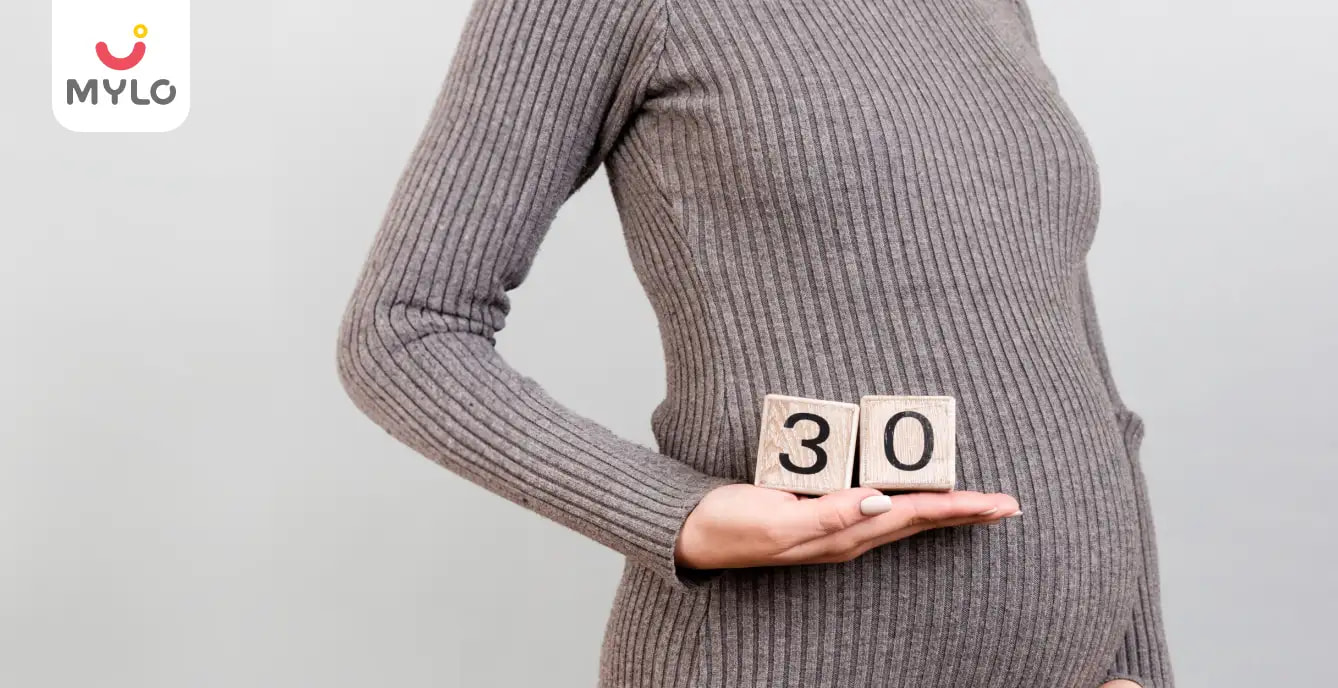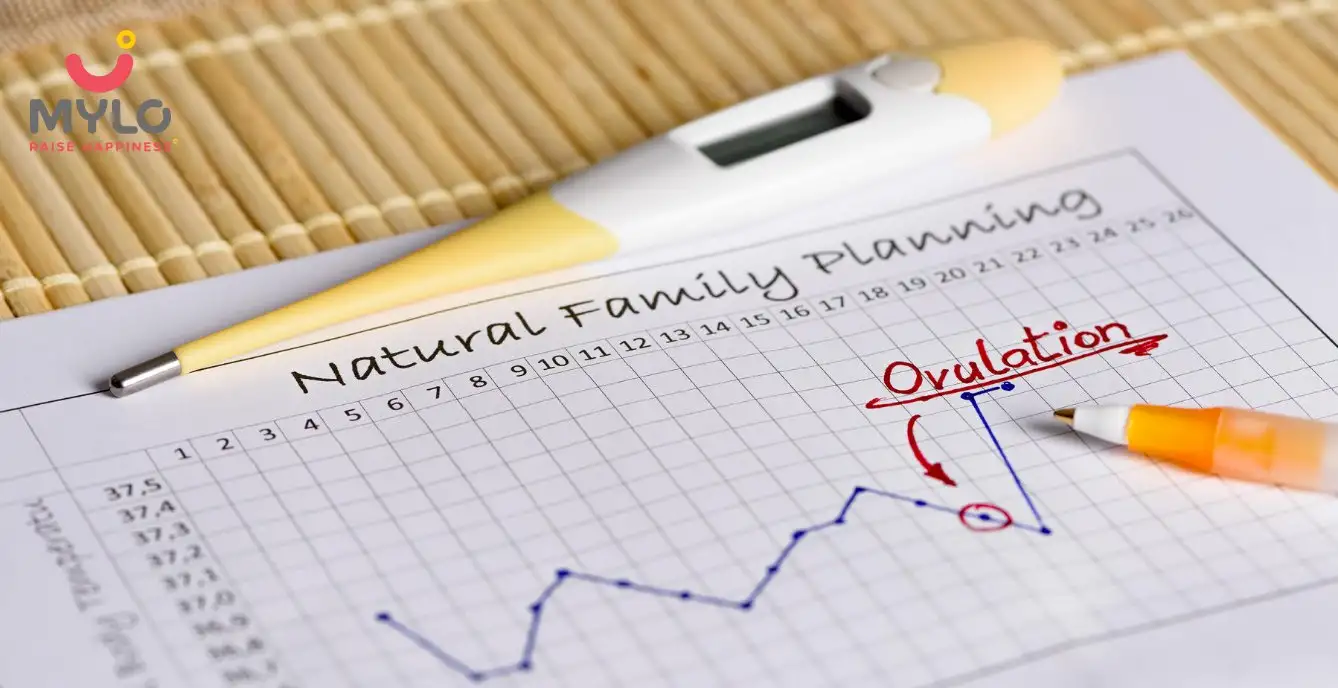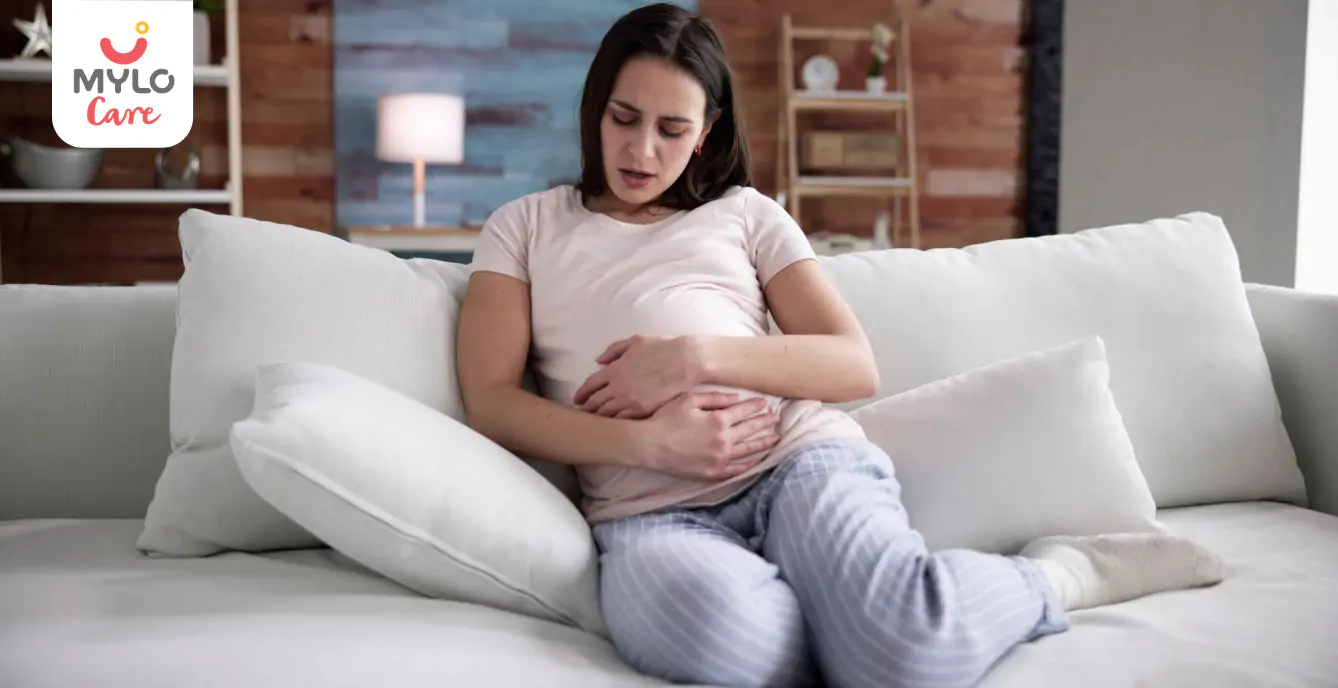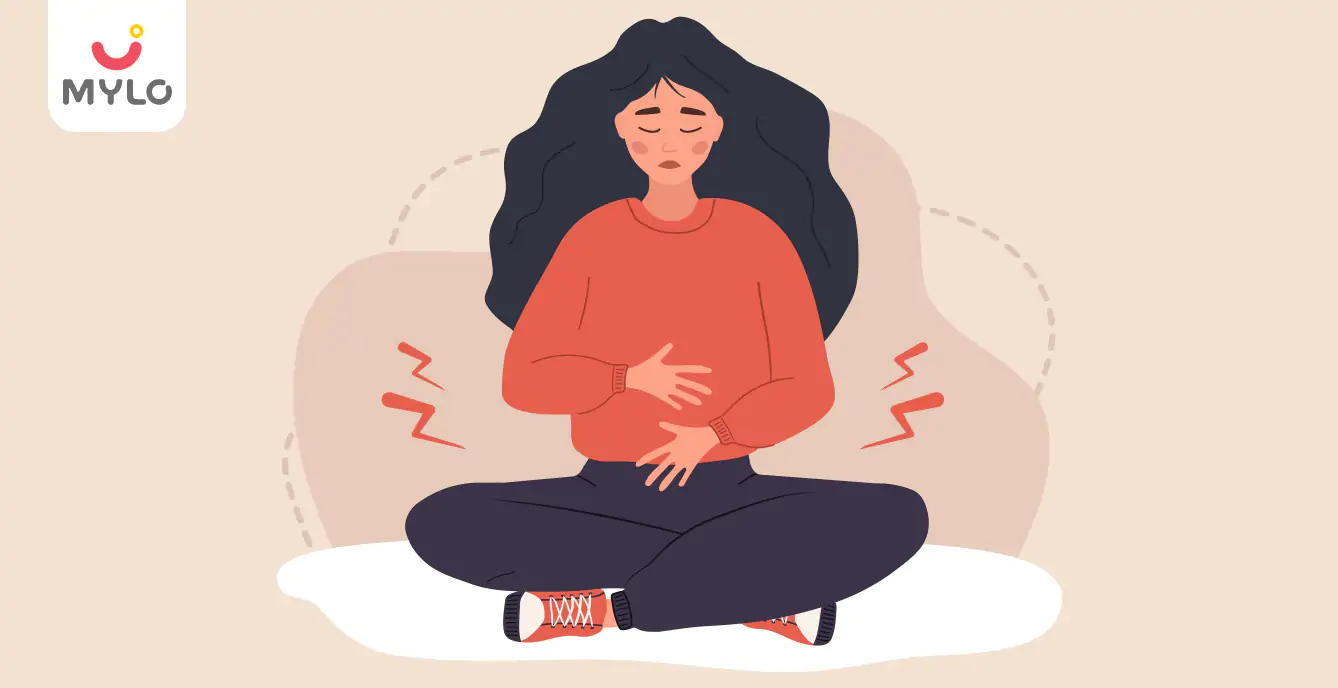Home

How to Boost Fertility in Your 30s: The Ultimate Guide
In this Article

Pregnancy
How to Boost Fertility in Your 30s: The Ultimate Guide
Updated on 7 December 2023



Medically Reviewed by
Dr. Shruti Tanwar
C-section & gynae problems - MBBS| MS (OBS & Gynae)
View Profile

As Surbhi approached her 33rd birthday, she couldn’t help but feel the absence of a baby in her life. She and Gautam had been trying to conceive for over a year now but found no success. This longing to have a baby of their own compelled Surbhi to find ways to improve her fertility. From searching on the Internet regularly to parsing through magazines and books, she had only one thing on her mind: how to boost fertility in your 30s.
So, let’s join Surbhi on her journey to exploring female fertility after 30, common fertility issues women may face around this age and tips for getting pregnant 30-35.
How Does Female Fertility Change After 30?
As women enter their 30s, their fertility undergoes significant changes. Unlike men, who continue to produce sperm throughout their lives, women are born with a finite number of eggs. By the time they reach their 30s, the quantity and quality of eggs start to decline.
This decline in fertility is primarily due to age-related changes in the ovaries and a decrease in the number of eggs available for fertilization. Additionally, hormonal imbalances become more common, making it harder for women in their 30s to conceive naturally.
What are Some Common Fertility Issues After 30?
Let us now understand some common fertility challenges that a woman may face after turning 30:
1. Diminished Ovarian Reserve
As women age, the number of eggs available for fertilization decreases. This is known as diminished ovarian reserve and can significantly impact fertility.
2. Irregular Ovulation
Hormonal imbalances can cause irregular ovulation, making it difficult to predict the fertile window and time intercourse accordingly.
3. Endometriosis
This condition, characterized by the growth of uterine tissue outside the uterus, can lead to fertility problems, especially after the age of 30.
4. Polycystic Ovary Syndrome (PCOS)
PCOS is a hormonal disorder that affects ovulation and can cause fertility issues in women in their 30s.
5. Uterine Fibroids
Fibroids are noncancerous growths that develop in the uterus and can interfere with fertility by blocking the fallopian tubes or affecting implantation.
You may also like: Top 5 Fertility Supplements & Their Role in Boosting Fertility
How to Boost Fertility in Your 30s?
Although female fertility encounters a natural decline during the 30s, there are several lifestyle changes, dietary modifications and herbs and supplements that can help a woman improve her fertility:
1. Lifestyle Changes
Tweaking your lifestyle can be a great way to boost your fertility. You can consider the following lifestyle adjustments:
2. Maintain a Healthy Weight
Achieving and maintaining a healthy weight is crucial for optimizing fertility. Both underweight and overweight women may experience difficulties conceiving. Aim for a body mass index (BMI) between 18.5 and 24.9.
3. Exercise Regularly
Engaging in moderate physical activity regularly can help regulate hormones and improve fertility. However, excessive exercise can have the opposite effect, so find a balance that works for you.
4. Manage Stress
High levels of stress can negatively impact fertility. Practice stress management techniques such as meditation, yoga, or deep breathing exercises to reduce stress and increase your chances of conception.
5. Dietary Modifications
Making certain changes to your diet can also help improve your fertility. These dietary changes include:
6. Eat a Balanced Diet
Consume a wide variety of fruits, vegetables, whole grains, lean proteins, and healthy fats. A well-balanced diet provides essential nutrients that support reproductive health.
7. Include Antioxidant-Rich Foods
Antioxidants help protect eggs from damage and improve their quality. Incorporate foods rich in antioxidants, such as berries, leafy greens, nuts, and seeds, into your daily diet.
8. Stay Hydrated
Drinking an adequate amount of water promotes overall health and ensures optimal cervical mucus production, which plays a crucial role in fertility.
You may also like : 8 Natural Herbs to Boost Fertility: Your Guide to Ayurveda's Best Kept Secrets
Herbs and Supplements
Complementing lifestyle and dietary changes with herbs and supplements can further improve your fertility. Some herbs and supplements that can help you overcome some common fertility issues after 30 include the following:
1. Shatavari
Shatavari is considered a highly effective herb for enhancing female fertility as it helps restore hormonal balance, prepares the uterus for conception and provides necessary nutrition such as folic acid and calcium.
Read more about : Shatavari
2. Coenzyme Q10
Coenzyme Q10 is an antioxidant that can improve egg quality. It may be beneficial for women in their 30s who are trying to conceive.
3. Zinc
Zinc plays a critical role in several processes that regulate female germ cell growth, fertility, and pregnancy. It can also help regulate the menstrual cycle and maintain hormone levels.
If you’re wondering how to boost fertility in your 30s, then you can also try Mylo's Ovaluna Female Fertility Capsules, which are an effective blend of fertility-boosting supplements like CoQ10, L-methyl folate, zinc, Vitamin D2, Vitamin B12 and Shatavari, among others. These ingredients are known to improve egg health and development, maintain hormonal balance, prevent fertility complications and regulate menstrual and ovulation cycles.
You may also like : Ovulation: The Key to Maximizing Your Chances of Conception and Pregnancy
Tips for Getting Pregnant 30-35
If you're in your 30s and trying to conceive, here are some tips to increase your chances of getting pregnant:
1. Get a preconception health checkup
Consult with your healthcare provider to ensure you're in good reproductive health and address any underlying issues.
2. Start tracking your ovulation
Use ovulation predictor kits or fertility tracking apps to identify your most fertile days and time intercourse accordingly.
3. Focus on weight management
Maintain a healthy weight to optimize fertility and improve your chances of conceiving.
4. Add folic acid to your diet
Ensure you're getting enough folic acid through a balanced diet or supplements to support a healthy pregnancy.
5. Limit alcohol and caffeine intake
Excessive alcohol and caffeine consumption can negatively affect fertility. Moderate your intake to increase your chances of conception.
Final Thoughts
While fertility decreases with age, understanding how to boost fertility in your 30s can help increase your chances of getting pregnant. By making lifestyle changes, modifying your diet, and considering certain herbs and supplements, you can optimize your fertility potential. Remember, each person's journey is unique, and it's important to consult with a healthcare professional for personalized advice. Take proactive steps, stay positive, and embrace the possibilities of starting a family in your 30s.
References
1. Owen A, Sparzak PB. Age-Related Fertility Decline. (2022). In: StatPearls [Internet]. Treasure Island (FL): StatPearls Publishing
2. Skoracka K, Ratajczak AE, Rychter AM, Dobrowolska A, Krela-Kaźmierczak I. (2021). Female Fertility and the Nutritional Approach: The Most Essential Aspects. Adv Nutr.
3. Taylor A. (2003). ABC of subfertility: extent of the problem. BMJ.





Medically Reviewed by
Dr. Shruti Tanwar
C-section & gynae problems - MBBS| MS (OBS & Gynae)
View Profile


Written by
Anupama Chadha
Anupama Chadha, born and raised in Delhi is a content writer who has written extensively for industries such as HR, Healthcare, Finance, Retail and Tech.
Read MoreGet baby's diet chart, and growth tips

Related Articles
Why Protein Is Essential During Pregnancy: Benefits of Protein-Rich Snacks
Top 100 Baby Names for Boys and Girls 2026 Edition: The Ultimate Trending & Meaningful Name Guide
The Ultimate Guide to the Best Romantic Web Series on OTT for Couples
Best Indian Crime Web Series Based on True Stories: The Ultimate Binge-Watch Guide (2026)
Related Questions
Influenza and boostrix injection kisiko laga hai kya 8 month pregnancy me and q lagta hai ye plz reply me

Hai.... My last period was in feb 24. I tested in 40 th day morning 3:30 .. That is faint line .. I conculed mylo thz app also.... And I asked tha dr wait for 3 to 5 days ... Im also waiting ... Then I test today 4:15 test is sooooo faint ... And I feel in ma body no pregnancy symptoms. What can I do .

Baby kicks KB Marta hai Plz tell mi

PCOD kya hota hai

How to detect pcos

Related Topics
RECENTLY PUBLISHED ARTICLES
our most recent articles

Anovulation Meaning Explained: What You Need to Know About Its Causes & Treatment

Basal Body Temperature
Basal Body Temperature: How It Can Help You Track Ovulation?
Ovulation
Ovulation Pain: Is It Normal or a Cause for Concern?

Diet & Nutrition
Special Home Remedies For Gas During Pregnancy

PCOS & PCOD
PCOD Problem After Marriage: Debunking Common Misconceptions and Finding Solutions

Ovulation
White Discharge After Ovulation: A Normal Occurrence or Cause for Concern?
- Normal Ovary Size: How It Varies and What It Means for You
- 2024 Calendar with Holidays and Festivals of India
- After-Abortion Sex: A Guide to Physical and Emotional Wellness
- Cervical Cerclage: A Closer Look at the Procedure and Its Benefits
- The Ultimate Guide to Panchatantra Stories for Kids
- Which Is Better Normal Or Cesarean Delivery
- How to Get Baby in Right Position for Birth?
- Paheliyan 101: Riddles for Kids That Educate and Entertain
- The ABCs of Cephalic Presentation: A Comprehensive Guide for Moms-to-Be
- The Ultimate Guide to Consuming Chia Seeds in Pregnancy
- Essential Tips for Normal Delivery After Cesarean
- Crab During Pregnancy: Benefits, Risks and Smart Choices
- Normal Delivery Tips: An Expecting Mother's Guide to a Smooth Childbirth Experience
- Top 10 Panchatantra Stories in English You Must Read to Your Children


AWARDS AND RECOGNITION

Mylo wins Forbes D2C Disruptor award

Mylo wins The Economic Times Promising Brands 2022
AS SEEN IN

- Mylo Care: Effective and science-backed personal care and wellness solutions for a joyful you.
- Mylo Baby: Science-backed, gentle and effective personal care & hygiene range for your little one.
- Mylo Community: Trusted and empathetic community of 10mn+ parents and experts.
Product Categories
baby carrier | baby soap | baby wipes | stretch marks cream | baby cream | baby shampoo | baby massage oil | baby hair oil | stretch marks oil | baby body wash | baby powder | baby lotion | diaper rash cream | newborn diapers | teether | baby kajal | baby diapers | cloth diapers |




